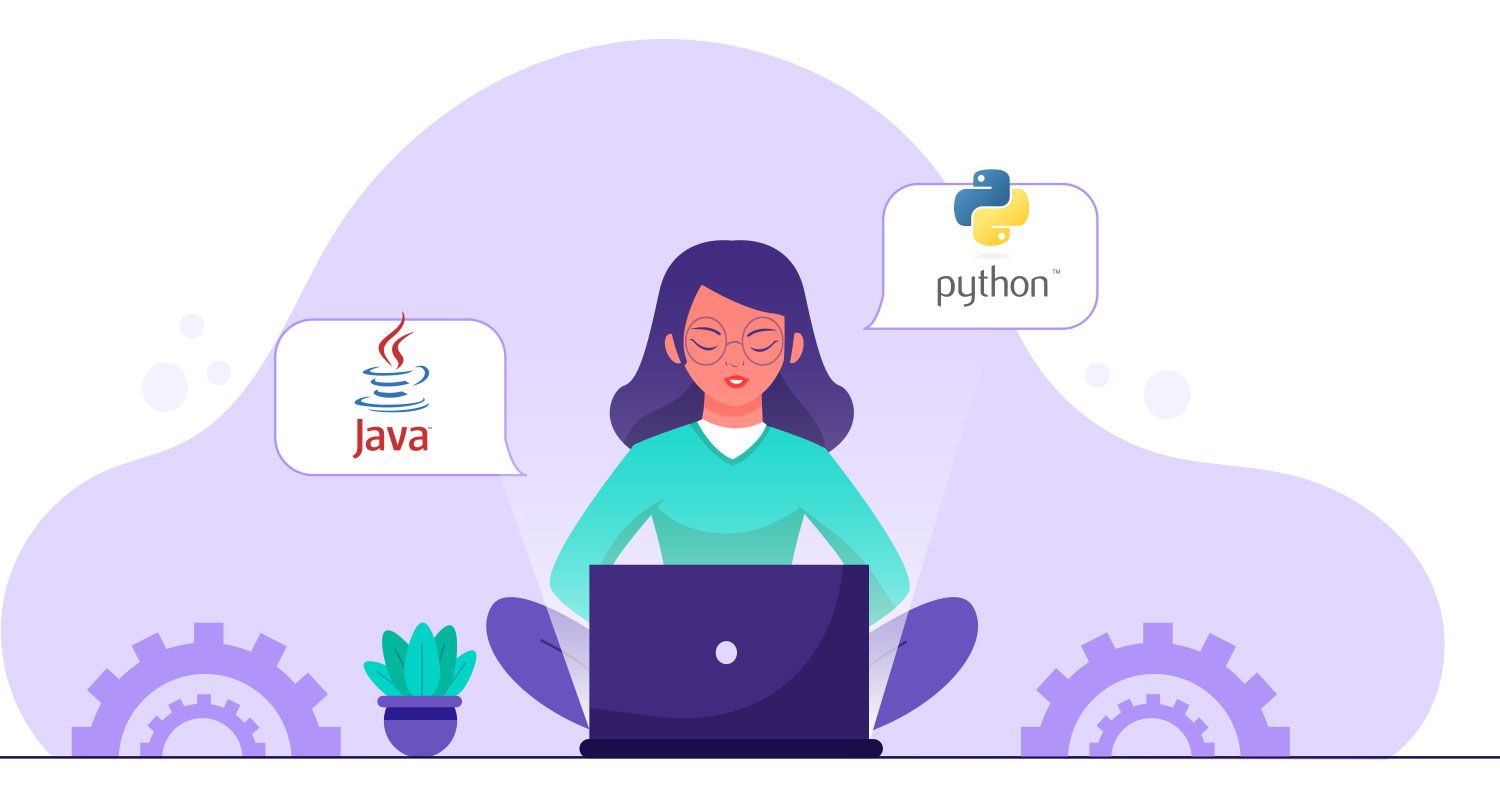Java vs Python the Eternal Rivalry

Ah, the age-old question: Java or Python? Developers have been debating this for years, and it seems like there’s no end in sight. It’s like trying to choose between pizza and ice cream. Both are delicious, but one is probably going to give you a stomach ache if you eat too much of it. But fear not, dear reader, for I am here to break down the pros and cons of both languages and help you make an informed decision.
First up, let’s talk about Java. Ah, Java. The king of the enterprise world. It’s been around for over two decades and is the go-to language for large companies and financial institutions. But why is it so popular in the business world?
Well, for starters, Java is a statically typed language, which means that you have to explicitly declare the data type of a variable before using it. This can be a pain in the butt for some people, but it also means that Java is less prone to errors and is generally more stable than dynamically typed languages (like Python). It’s like choosing between wearing socks with your shoes or going barefoot. Sure, barefoot might be more comfortable, but you’re going to end up with some nasty blisters if you’re not careful.
Java is also incredibly fast. It’s compiled, which means that it’s converted into machine code that can be executed directly by the processor. This makes it ideal for applications that require high performance, such as games or financial software. It’s like driving a Lamborghini vs a scooter. The Lamborghini might be a little more expensive, but it’s definitely going to get you where you need to go faster.
But Java isn’t perfect. One of the biggest drawbacks is its verbosity. Java code can be quite lengthy and requires a lot of boilerplate code to get things done. It can be tough for beginners to wrap their heads around, and it’s not exactly the most readable language out there. It’s like trying to read a legal document written in hieroglyphics. Good luck with that.
Now let’s move on to Python. Python is a dynamically typed language, which means that you don’t have to explicitly declare the data type of a variable. This makes it easier to write and read, but it also means that it’s more prone to errors. It’s like choosing between a salad and a cheeseburger. The salad might be better for you, but let’s face it, the cheeseburger is a lot more fun.
Despite this, Python is incredibly popular. It’s the go-to language for machine learning and data science, and it’s often used for web development and scripting. It’s also known for its simplicity and ease of use, making it a great choice for beginners. It’s like choosing between a pair of stilettos and a pair of sneakers. The stilettos might be more stylish, but the sneakers are a lot more comfortable.
But Python isn’t all sunshine and rainbows. It’s slower than Java (and most other compiled languages) because it’s interpreted, which means that it has to be converted into machine code at runtime. This can be a problem for applications that require high performance. It’s like trying to run a marathon in flip flops. You might make it to the finish line, but it’s going to take a lot longer and be a lot more painful.
So, which language should you choose? Well, it really depends on your needs. If you’re working on a large enterprise application or something that requires high performance, Java might be the way to go. But if you’re just starting out or working on a small project, Python might be the better choice. It’s like choosing between a hammer and a screwdriver. A hammer can get the job done, but a screwdriver is a lot more precise.
But let’s be real, the most important factor in choosing a programming language is whether or not it makes you happy. And let’s face it, nothing brings a smile to a developer’s face like a well-placed print statement. Or a good meme. So really, the choice is clear: Python all the way.
Just kidding! Both Java and Python have their pros and cons, and the right choice depends on your specific needs and goals. So don’t be afraid to try out both languages and see which one works best for you. It’s like dating. You might think you want someone who’s tall, dark, and handsome, but then you meet someone who’s shorter, blond, and cute and they just click with you. You never know until you try.
In conclusion, the Java vs Python debate is an age-old one that will probably never be fully resolved. But at the end of the day, the most important thing is to choose a language that helps you get the job done and brings a little joy to your life. Just like choosing the right partner. Happy coding (and relationship-ing)!
Why did the Java developer switch to Python?
Because he was tired of writing so much code just to print “Hello, World!”
//Java
public class HelloWorld {
public static void main(String[] args) {
System.out.println("Hello, World!");
}
}
#Python
print("Hello, World!")

